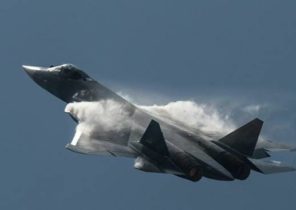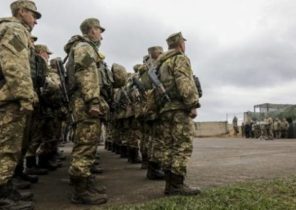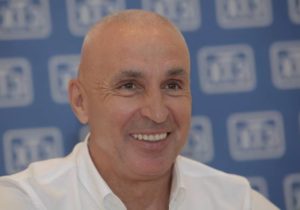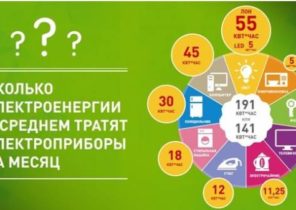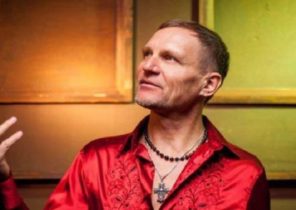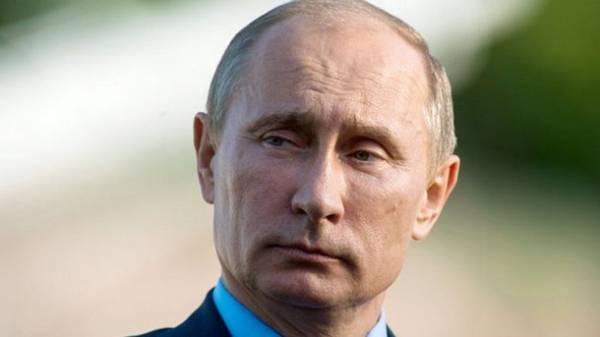
When it comes to discuss the details of the UN peacekeeping mission in the Donbass, Russia will insist that the majority of peacekeepers were Russian, or from those countries that are dependent on Russia and Russia’s share approaches. About this in an interview with “Today” on the sidelines of the annual conference Yalta European strategy (YES) in Kiev, said the Scientific Director of the Institute for Euro-Atlantic cooperation Oleksandr Sushko.
“It is obvious that Russia is not now for me to go to some version of international peacekeeping operations. They must still calculate the significant economic damage from sanctions, and political from the actual lack of any progress on the settlement. And you know that sooner or later needs to be some concessions. Pure preservation of the current situation does not bring them the dividends they expected. Was the expectation that Ukraine will not survive such a long period of tension, that perhaps the West will lift the sanctions, violated the solidarity of the Western countries. Moreover, a year ago, very actively talked about the fact that the sanctions will begin to remove that Ukraine has something will fall down, etc., But the Russian side did not materialize,” – told the “Today” Sushko.
According to him, then the Russians started to think of how to change the situation, and one of the steps was Putin’s statement at the peacekeepers.
SEE ALSO
- The Russian peacekeepers in the Donbass, Putin asked for help from the Macron
“For a long time Russia has rejected the idea, but now decided to formally support it, but, in fact, apply so that it is in the case of adoption actually meant that? The legalization of Russian military presence in the Donbas. Obviously, when it comes to details, I’m pretty sure, will be that the Russians will insist that in this international peacekeeping mission and their part was crucial. That is, most of the peacekeepers must be Russian, or from those countries that are dependent on Russia and Russia’s share approaches. Russia already has experience of such pseudo-peacemaking when they monopolizing this role and actually carry out legitimized the occupation is Transnistria, South Ossetia,” – said Sushko.
The expert recalled that the mandates of peacekeeping missions are very different and each unique. This, according to Sushko, all the more reason why the Ukrainian side to prevent the Russians were members of this peacekeeping mission.
“If a particular country becomes even a minority participant in a peacekeeping operation, it means the recognition of it as a neutral subject. This means that Russia is a peacemaker and not a party to the conflict. So if Russia is a peacekeeping mission, even a small contingent, it means the recognition that it was not a party to the conflict. And that’s one of the reasons why they decided to refer to this initiative and in his own way to introduce her to one side again to legalize its military presence, and on the other to legalize its status as a party and peacemaker, that is, of a mediator in resolving the conflict” – summed up Sushko.
Recall that on 5 September, Russian President proposed the deployment of peacekeepers in the Donbas. However, one of its main conditions was the placement of the UN peacekeeping mission on the demarcation line.
At the same time, Ukraine’s permanent representative to the UN Volodymyr Yelchenko said that the UN peacekeeping mission in the case of the introduction in the Donbass should be located on the Russian-Ukrainian borderand the participation of representatives of Russia excluded.
Yalta European strategy (Yalta European Strategy, abbreviated as YES forum) is an annual conference organized by the Victor Pinchuk Foundation.
The conference gathers the most influential politicians and businessmen of Ukraine and the world, it has been held annually since 2004.
HELP
- Yalta European strategy YES: what you need to know
The aim of the conference is the development of Ukraine and its European future, as well as establishing international ties.
The founder of the Yalta European strategy, Victor Pinchuk, a prominent Ukrainian businessman and philanthropist.
